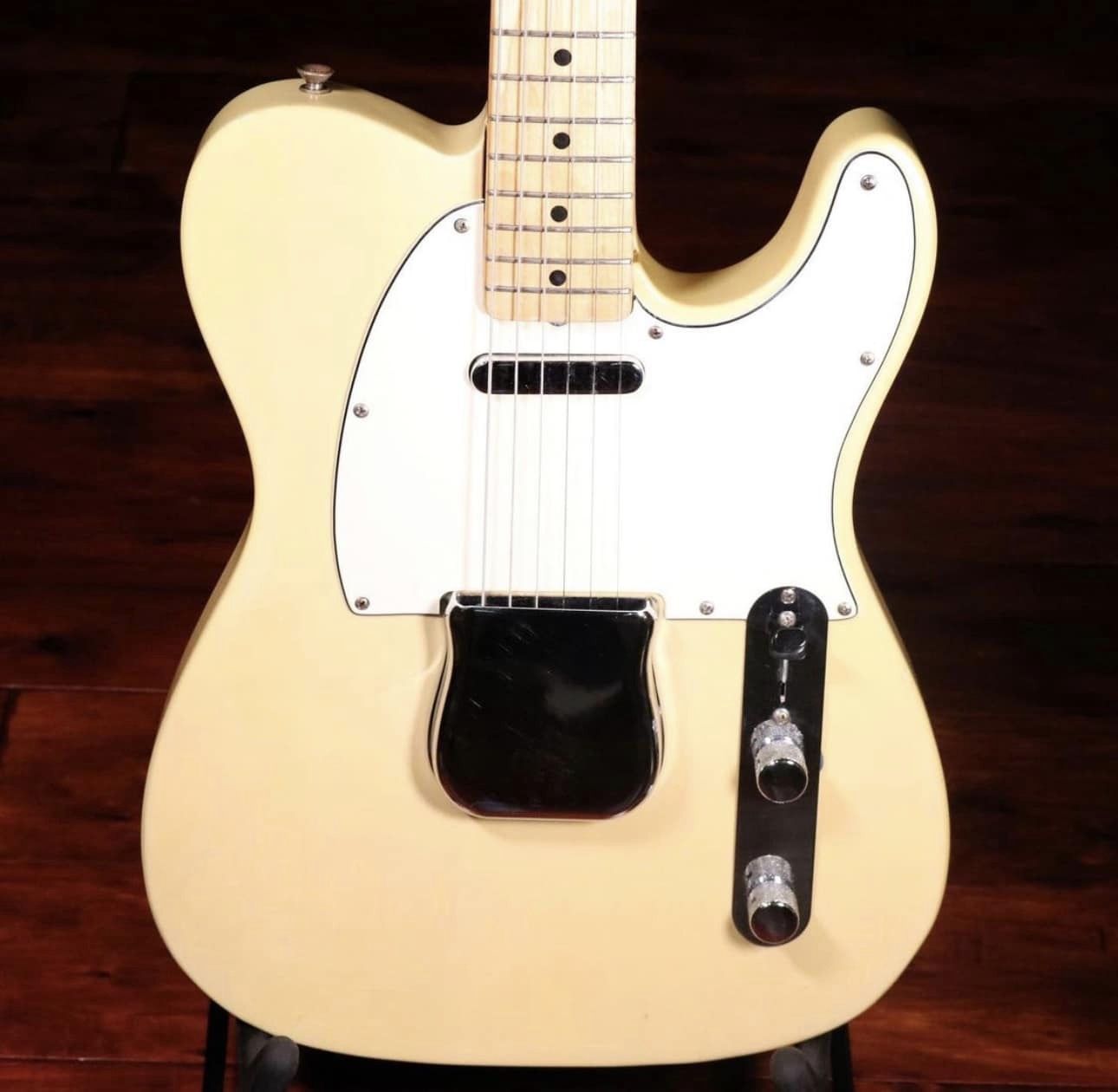
Both collectible acoustic and electric guitars resonate with a melody that transcends their physical form. They are not merely instruments; they are storied relics, each strum echoing the past, each chord a testament to craftsmanship, and each design a piece of art. Whether it’s a Fender Telecaster or a 1959 Gibson Les Paul Standard, each one of these instruments has a unique story to tell. This allure is what draws people towards collecting guitars, turning homes into galleries of resonant wood and gleaming strings. This is all part of why people buy and sell guitars in Chicago.
Strumming Through History: The Emotional Value of Guitars
The love of guitars often begins with a spark—a favorite musician, a memorable concert, or the sheer beauty of a guitar. This passion is stoked by the history and rarity of these instruments, from the Eric Clapton Signature Stratocaster to the Gretsch 6120. For some, the guitar owned by a rock legend or a rare model from a bygone era holds a value that’s both emotional and historical.
Others find the distinctive sound of a vintage guitar—shaped by decades of resonating music and the mellowing of wood over time—to be incomparable to modern instruments.
The Collector’s Journey: Investing in Strings
The reasons for collecting guitars are as varied as the instruments themselves. Some collectors are drawn to the potential investment value. Vintage guitars have seen a steady appreciation over the years, with some rare pieces like the Gibson Explorer fetching astronomical sums at auctions. For others, it’s the pursuit of a perfect tone, a quest that can become a lifelong journey of discovery and learning.
The Bittersweet Goodbye: Why Sell a Cherished Guitar?
While the reasons for collecting may be clear, the motivations for selling a collectible guitar are equally diverse. The most straightforward reason is financial. Life circumstances can change, and the need for liquidity can make selling a guitar a practical decision. For collectors, the decision to sell often comes as a way to finance investments, property purchases, or tuition, while also finding satisfaction in knowing that their once dormant possessions will be valued and used by others.
Echoes of Music Past: Ensuring Guitars Continue to Sing
Another reason to part with a guitar could be the desire for it to be played and appreciated rather than sitting silently on display. A guitar’s intrinsic value is not only in its aesthetics and history but also in its sound and playability. Selling to someone who will play and preserve it honors the instrument’s purpose and ensures its legacy continues.
Trading Chords: The Economics of Guitar Collecting
Additionally, collectors might sell a piece to fund another acquisition, sometimes referred to as ‘trading up’. This practice is common among collectors who are continually refining and enhancing their collections. For example, you may be building a prized Joe Walsh guitar collection and realize you’re willing to part with a couple of your earlier acquisitions. Consider selling your less desirable specimens to help fund your next exciting purchase.
A Community of Strings: The Shared Passion for Guitars
Collecting guitars can be a solitary hobby, but it also has a communal aspect. Guitars often change hands within a community of enthusiasts and guitar players who appreciate their value and heritage. Selling a guitar provides the opportunity to strengthen these communities, passing on the joy and privilege of owning a remarkable instrument to another aficionado.
The Final Measure: Finding a Reputable Dealer for Appraisal
For those considering selling a collectible guitar, the last step is as crucial as the first string plucked—the appraisal. An accurate appraisal by a reputable dealer is paramount. These experts bring a wealth of knowledge, not only about the guitar’s market value but also its provenance, its condition, and its place within the pantheon of collectible instruments.
Striking the Right Chord: Ensuring Your Guitar’s Legacy
Finding a trustworthy dealer involves research. Our collectors at Chicago Gold Gallery have a strong reputation within the guitar community, we are known for our integrity and expertise. We have a history of transparent transactions and satisfied clients.
When you bring your guitar in for appraisal, be prepared with as much information as possible. Serial numbers, the history of ownership, whether it’s a signature model, any documentation, and details of the guitar’s condition are all important. An expert dealer will consider these factors and more when appraising your guitar.
The decision to sell a collectible guitar is personal and often difficult. But by ensuring it is placed in appreciative hands, and its value is rightly assessed, you can rest assured that the legacy of your instrument will be sustained. Whether for financial reasons, for the love of the instrument, or to further refine a collection, selling a collectible guitar can be a fulfilling chapter in the life of a collector.